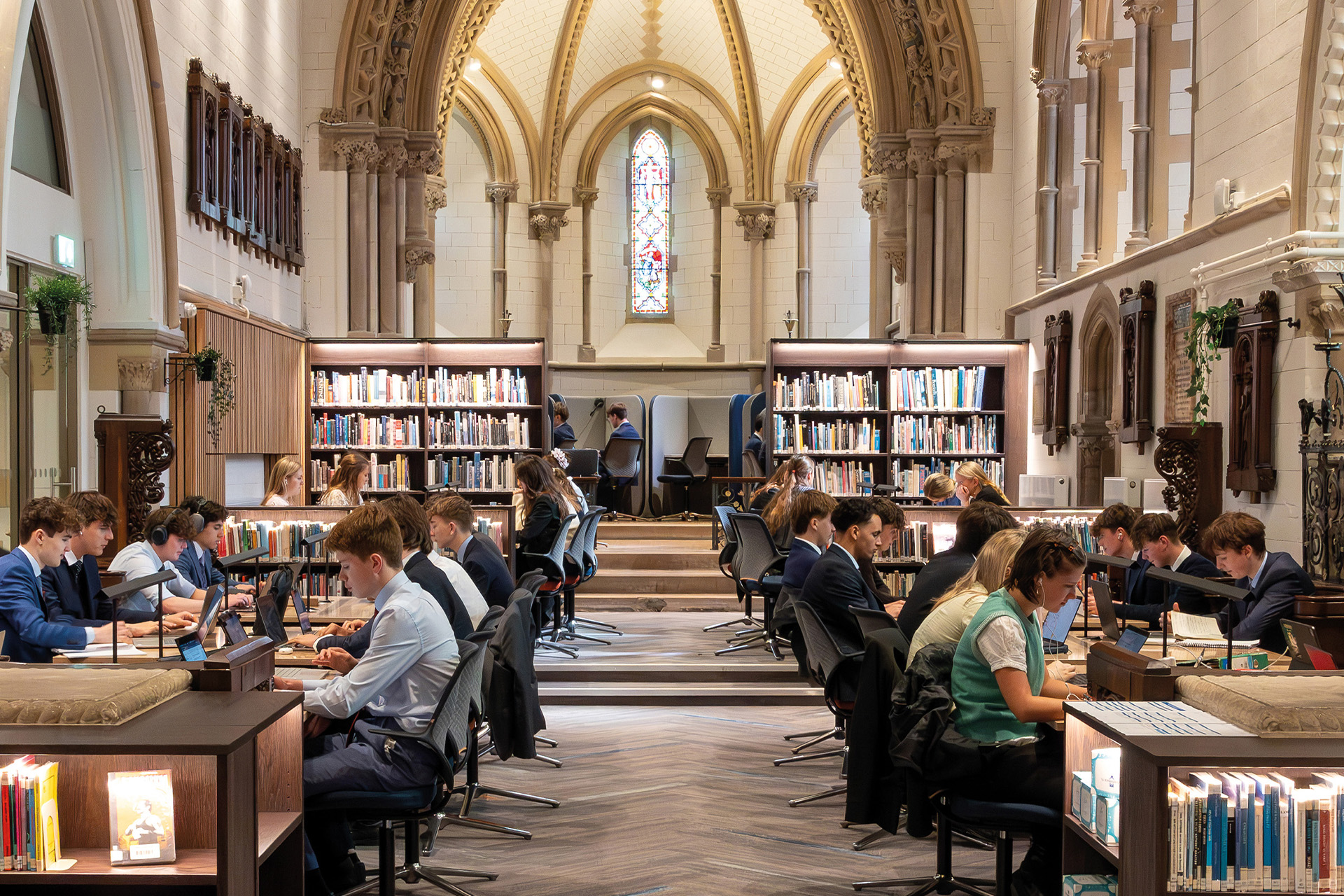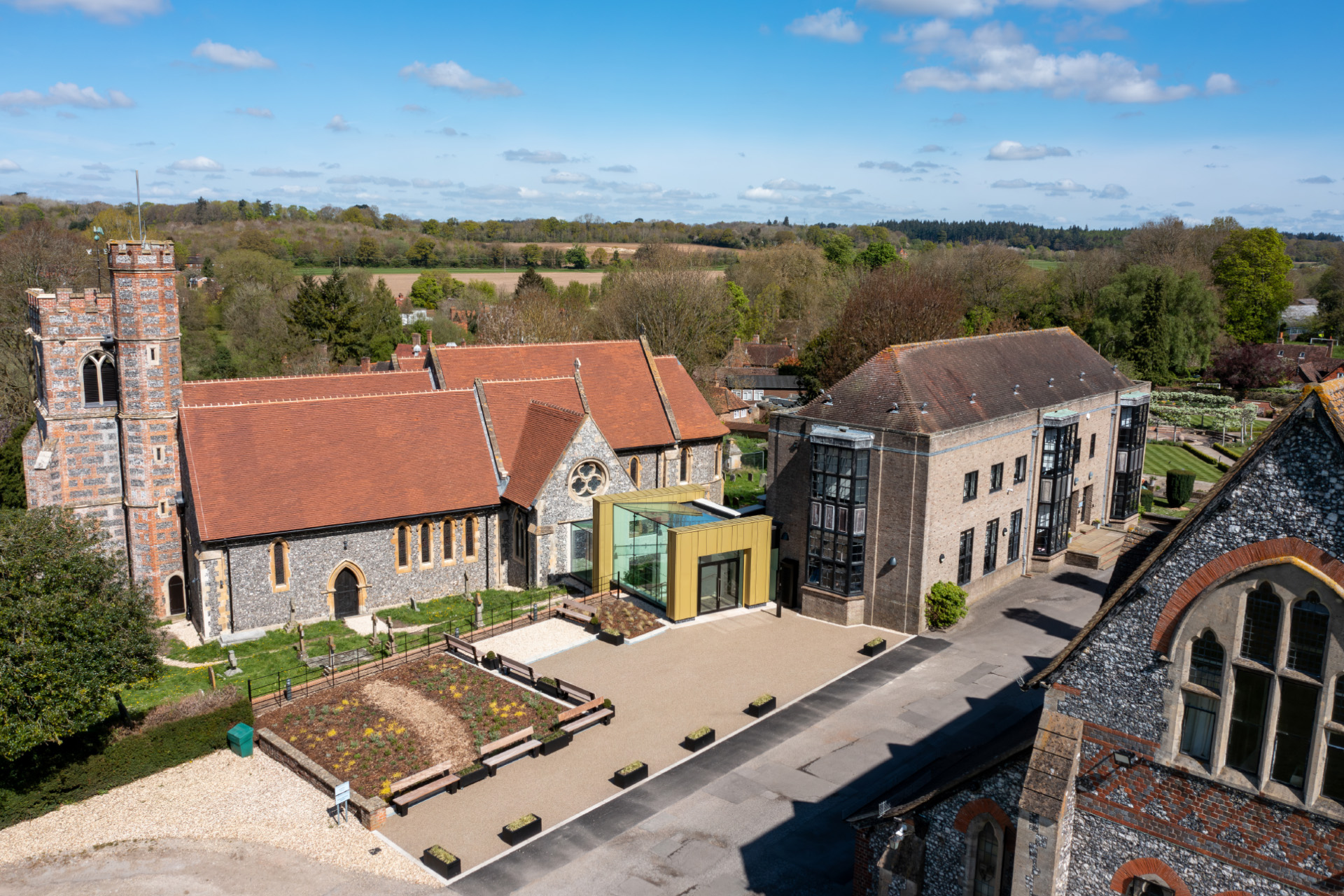Bradfield College Opens St Andrew’s Study Centre
By
1 year ago
An inspiring study place for pupils

Neil Burch, Senior Master at Bradfield College discusses the development of St Andrew’s Study Centre
Bradfield’s purchase and renovation of the parish church at the epicentre of the College’s founding 175 years ago has taken a Gilbert-Scott architectural classic and set it in the modern world. So much more than a beautiful, contemporary design, St Andrew’s is a concept.

St Andrew’s Study Centre exterior
This remarkable new Study Centre is squarely a teaching and learning project; a reflection of Bradfield’s curriculum and a manifestation of what we see as our responsibility to prepare our pupils to work and study in 2024 and beyond. St Andrew’s has books – over 11000 books – but is not solely a library; it has spaces that can be booked by teachers but where the teacher is the facilitator not the ‘sage on the stage’; it offers coffee and refreshments but is not a refectory; it has a hum of industry and collaboration but with space for silent, independent work. Pen and pad reign just as much as the ubiquitous wifi.
Modern universities, here and overseas, as well as corporate and commercial practices all influenced and informed the design. ‘Blended’ and ‘flexible’ are operative words: St Andrew’s is not a single environment but a blend of spaces where each supports a different type of individual or group work for over 160 pupils. The Seminar Room and Mezzanine allow for discussion and debate whilst the Presentation Space offers tiered seating for academic lectures and for pupils to hone the art of public speaking. No nonsense, the long central Reading Room is for serious academic study.
The imposing but sympathetic – aesthetically beautiful – glass walls in the nave make learning visible from every angle, the belief being that St Andew’s is an immersive experience where best practice is role-modelled, particularly between those at the top of the school and younger pupils. This mirrors the design philosophy underpinning other recent projects in the College. Pupils in the quiet reading area of St Andrew’s see a mix of interactions; pupils discussing work but also the grind and focus of those working independently in the central space that runs from nave to sanctuary.
St Andrew’s is a concept, one that supports the ‘Life of the Mind’ strand of Bradfield’s Education Strategy. Qualifications as they stand are under intense scrutiny but remain important for all manner of reasons. Bradfield understands, however, that education in its purest goes well beyond A*s and Grade 9s. Our responsibility is to develop in pupils a love of learning for learning’s sake; learning for the sheer enjoyment of the academic pursuit, supported by brilliant teachers, inspired by the buildings they study in.
As a career teacher of over 20 years, 12 of them as a senior leader I have not witnessed a project – systems, cultural, or capital build – have such an immediate and profound effect of pupils’ approach to academic study. Our sixth form pupils can taste the future; our lower school pupils can’t wait to take their place.






